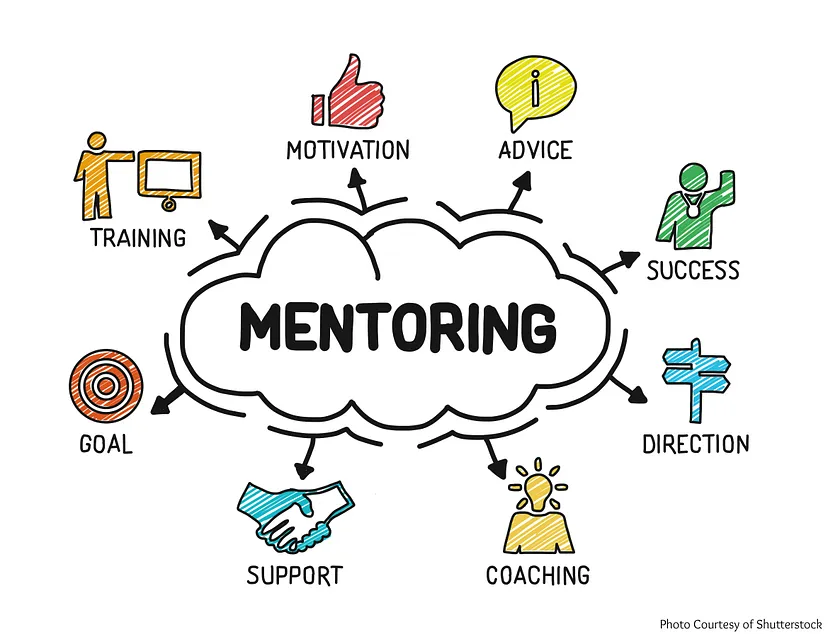Mentorship
What is Mentorship?
Definition:
“Mentorship” refers to a developmental relationship in which a more experienced or knowledgeable individual, known as the mentor, provides guidance, support, and advice to a less experienced or knowledgeable individual, known as the mentee. Mentorship is a structured and intentional process that aims to foster personal and professional growth, skill development, and knowledge transfer. It involves the sharing of expertise, experiences, and insights to help the mentee navigate their career path and overcome challenges.
Analogy:
Consider mentorship as a journey where an experienced guide helps someone navigate unfamiliar terrain. Just as a mentor guides a mentee through challenges and opportunities, ensuring a smoother journey, mentorship provides a framework for learning and development in various aspects of life.
Further Description:
Mentorship involves several key elements:
Goal Setting: Establishing clear goals and objectives for the mentorship relationship ensures that both the mentor and mentee are aligned in their expectations and desired outcomes.
Skill Development: Mentors play a crucial role in helping mentees develop specific skills, providing guidance on areas such as leadership, communication, problem-solving, and industry-specific expertise.
Knowledge Transfer: Mentors share their knowledge, experiences, and lessons learned with mentees, contributing to the transfer of valuable insights that may not be readily available through formal education or training.
Networking Opportunities: Mentorship often opens doors to valuable networking opportunities, allowing mentees to connect with professionals in their field and expand their professional circles.
Feedback and Reflection: Regular feedback sessions and opportunities for reflection help mentees assess their progress, identify areas for improvement, and celebrate achievements.
Career Guidance: Mentors offer career advice, help mentees navigate career decisions, and provide insights into the industry landscape, contributing to the mentee’s overall professional development.
Why is Mentorship Important?
Knowledge Transfer: Mentorship facilitates the transfer of tacit knowledge, practical insights, and industry-specific expertise from experienced individuals to those who are less experienced.
Professional Development: Mentorship accelerates professional growth by providing personalized guidance, skill development, and constructive feedback, helping mentees reach their full potential.
Confidence Building: Having a mentor provides mentees with a support system, boosting their confidence and resilience as they face challenges in their personal and professional lives.
Networking Opportunities: Mentorship often opens doors to valuable networking opportunities, allowing mentees to connect with professionals in their field and gain exposure to new perspectives.
Career Advancement: Mentorship can contribute to career advancement by providing guidance on career decisions, helping mentees navigate challenges, and offering insights into the unwritten rules of their industry.
Examples and Usage:
Sheryl Sandberg and Mark Zuckerberg: Sheryl Sandberg, former Chief Operating Officer of Facebook, mentored Mark Zuckerberg, the CEO of Facebook. Their mentor-mentee relationship is often cited as a successful example in the tech industry.
Oprah Winfrey and Dr. Phil McGraw: Oprah Winfrey mentored Dr. Phil McGraw, who later became a prominent television personality and host. Oprah’s guidance played a crucial role in Dr. Phil’s career development.
Tech Industry Mentorship Programs: Many technology companies, such as Google and Microsoft, have formal mentorship programs where experienced employees mentor newer hires, facilitating knowledge transfer and skill development.
Key Takeaways:
- Establish clear goals and expectations for the mentorship relationship to ensure alignment between the mentor and mentee.
- Mentorship involves skill development, knowledge transfer, networking opportunities, and career guidance.
- Regular feedback sessions and opportunities for reflection contribute to the mentee’s overall growth and development.
- Mentorship is a valuable tool for accelerating professional development, building confidence, and navigating career challenges.
Table of Contents





